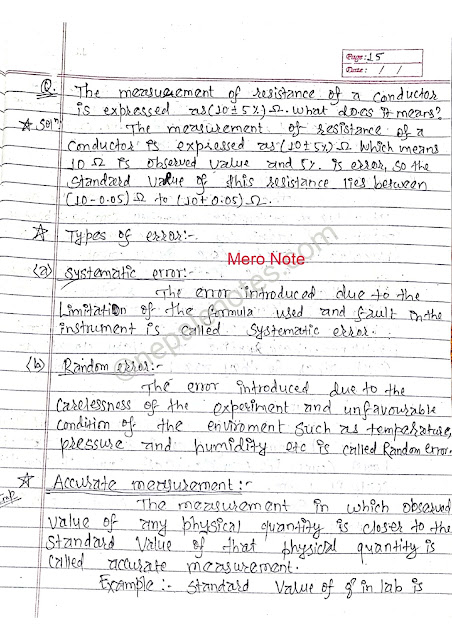Physical Quantity || Physics || Class 11 || NEB || MeroNote||
Physical quantities:
All measurable quantities are called physical quantities. For example; mass, length, time, velocity, temperature etc.
Types of physical quantities:
There are two types of physical quantities.
1. Fundamental physical quantity:
Ans: The physical quantity which is independent of other physical quantities is called fundamental physical quantity. For example; mass, length, time, temperature etc.
2. Derived physical quantity:
Ans: The physical quantity which is derived from other physical quantities is called derived physical quantity. For example; velocity, acceleration, force etc.
Unit:
Ans: The standard physical quantity taken as reference to express the physical quantity is called unit. For example; kg, meter, ms-1 Newton (N) etc.
Types of unit:
1. Fundamental unit:
Ans: The unit which is independent of other units is known as fundamental unit. For example; kg, m, S. etc.
2. Derived unit:
Ans: The unit which is derived from other units is known as derived unit. For example; kgm-3, ms-1 etc.
System of unit:
Ans: A system of units is a set of standardized measurements used to quantify physical quantities. Key types include:
SI (International System of Units):
Ans: The global standard with base units like meter, kilogram, and second.
Imperial System:
Ans: Used mainly in the US and UK, with units like feet, pounds, and gallons.
CGS (Centimeter-Gram-Second):
Ans: A metric system based on centimeter, gram, and second.
MKS (Meter-Kilogram-Second):
Ans: A precursor to SI, using meter, kilogram, and second.























0 Comments